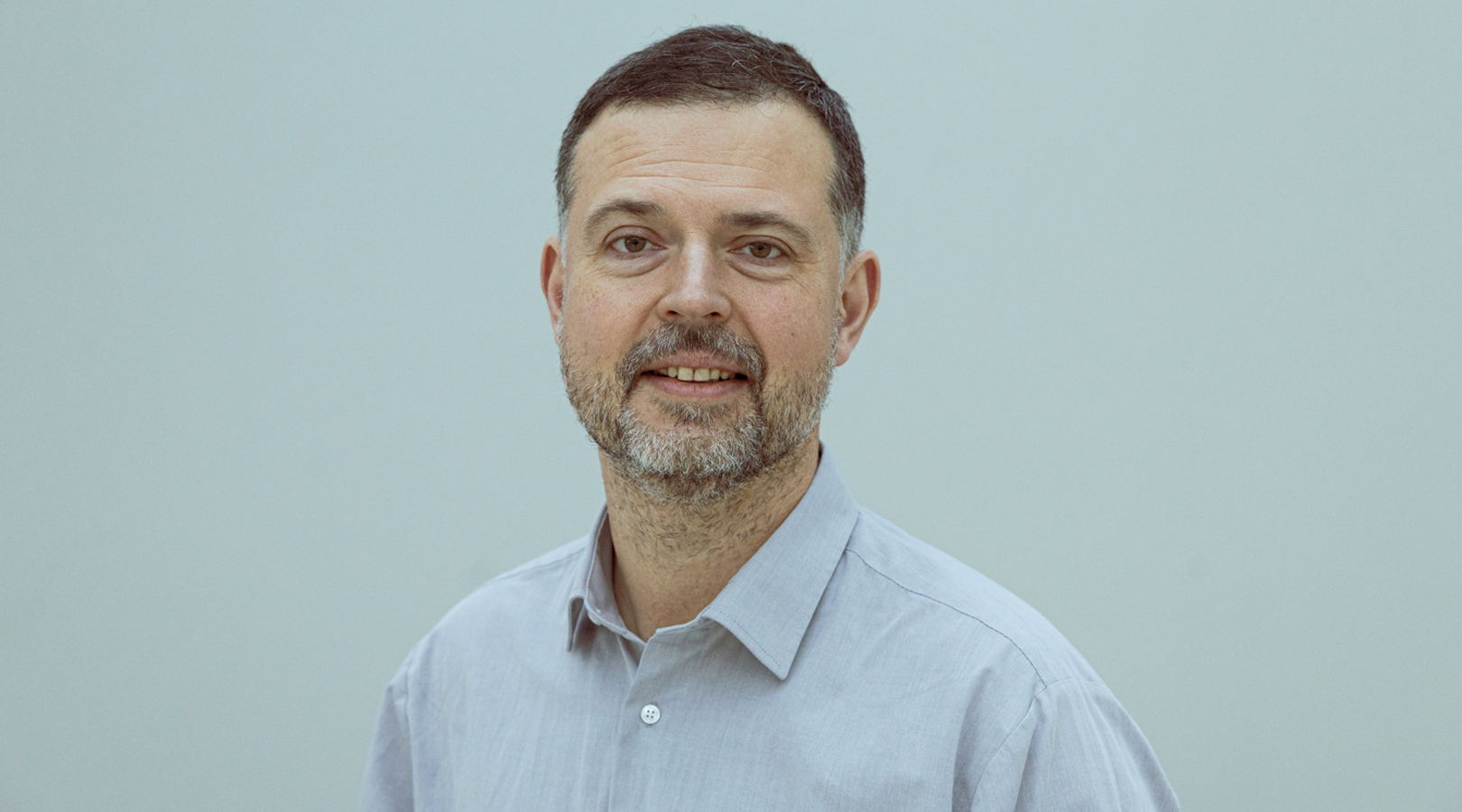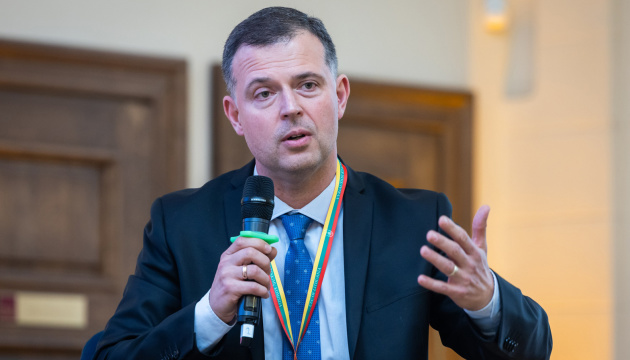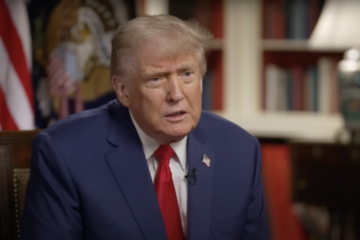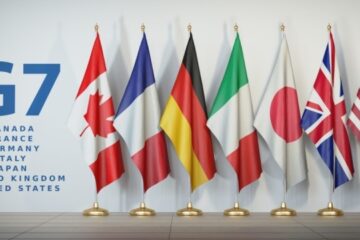Nerijus Maliukevicius is a leading Lithuanian expert on countering information and psychological operations (IPSO) during times of crisis and conflict. He is the author of two books and numerous studies on combating Russian propaganda and disinformation in Lithuania. Maliukevicius is also well known for his expertise in media research in Georgia and Belarus, particularly his analysis of how the Lukashenko regime-controlled media outlets construct the “enemy image.” He has participated in major international research projects, including the development of hybrid forecasting systems under the IARPA program (U.S.). In an interview with Ukrinform, he spoke about Russia’s growing disinformation efforts across Europe, how the Kremlin manipulates human emotions for its operations, and what can actually stop Russian propaganda.
RUSSIA SUFFERED A MAJOR BLOW AFTER THE FAILURE OF THE KYIV OPERATION IN 2022
– So, as an expert in information and psychological operations, what are the main narratives that Russia has been using against Lithuania in recent years?
– Probably the biggest challenge is the general evolution and escalation of the Russian infowars toolbox, meaning that we can actually go back into decades of old experience with those operations. But basically, if we look into the initial stages, they were concentrated on the Russian language information space, specifically targeting the so-called compatriots, trying to create this kind of a network of organizations and people and so on. I think that one of the biggest transitions in the evolution of those strategies (we can already see around 2014 in all of Europe but basically in Lithuania) is turning it into a kind of disinformation and propaganda messaging.
Nowadays, the most challenging development is actually a kind of sabotage events like arson attacks in Poland and Lithuania (an attack on an Ikea furniture store in May 2024). They are actually trying to do this kind of nasty planning operations because one of the perpetrators who was co-opted via Telegram channels was a Ukrainian teenager. And this brings another aspect of trying to build divisions and then kind of anger towards Ukrainians.
So we see more and more events in the Baltic Sea with all the kinetic cable operations and so on. And definitely, the very important aspect is that those operations are more and more being organized virtually via Telegram channels, via chat systems and so on. We even had an official recommendation from the Lithuanian Ministry of Education to our different schools to communicate to pupils and students that they should be cautious about the potential dangers of those ongoing kinds of virtual operations where Kremlin cronies are trying to find different perpetrators for different sabotage operations.
Russian or Soviet type operations are basically opportunistic operations. They are not so much creating different realities and different narratives. They are simply using the existing kind of tensions and then using this for the benefit to create more chaos, more division.
– Did Russian IPSO operations in Europe start to be more active after 2022?
– In 2022, Russia took a big blow from Ukraine after the Kyiv offensive operation. So for a year or less they were quite paralyzed and totally concentrated on their efforts vis-a-vis Ukraine so there was a moment when Russian TV propagandists did not know what to say and what to do like with a recent Ukrainian attack on strategic assets (Operation Spiderweb carried out by the Security Service of Ukraine on June 1 when Ukrainian drones attacked four Russian military airfields and struck 41 strategic bombers).
Afterwards, the Russians began to rethink and adapt. In 2023, we already started observing those more aggressive operations, like specific attacks against the Belarusian opposition that ended up in Lithuania, and even physical attacks. Then we saw a wave of Russian-inspired attacks against our national monuments, where they were desecrated with paint, where the perpetrators were co-opted via social networks, and then the perpetrators were detained on the border of Latvia and Estonia. That is an important aspect when our intelligence services started catching some of those guys and doing analysis.
RUSSIAN PROPAGANDA IS COUNTERED THROUGH ENHANCED DEFENSE CAPABILITIES
– Except that this is irritating, what is the real danger behind this operation and what are the main groups that Russia is targeting with this kind of operation?
– It’s not just that it’s irritating. It has its own logic. What Russia wants to do by this is to create parties more aligned with the Kremlin’s agenda and politicians would gain more ground by saying things like: ‘We should appease Russia to evade those kinds of aggressive acts.’ Through such operations, Russia brings conflict and war onto our ground. And we in the West are still not so willing to accept the challenge.
One of the Russian targets is to attack organizations and businesses that are related to helping Ukraine militarily. But generally, it’s a wider approach to creating this kind of political chaos where you can gain ground out of it. And the whole idea is to make us less focused on policies that intend to strengthen Ukraine and to help Ukraine militarily and economically. What we are seeing in the context of the Russian war in Ukraine is that Putin is counting on his determination to continue the aggression outlasting not just Ukraine’s will to resist, but the West’s as a whole.
And there is no issue here and there is an abundance of Ukrainian will to defend its sovereignty. But what the Kremlin is focusing on is the Western will to support Ukraine in this battle. You can call it hybrid means or information means, and the main paradox is that in the West, you don’t need tanks, planes and bombs to achieve this goal. The whole Russian logic is to invest more in those aggressive information means in the West, in our environment, to sabotage this will to support Ukraine and at the same time throw in as much as possible humans, tanks and military means against Ukraine.

– What are the best tools to counter this propaganda? Because, for example, they’re doing something, we’re saying it’s a lie and it’s just answering all the time, we are not proactive. How can we counter that and take a step forward?
– A central idea would be that you can only counter Putin’s propaganda by very resolute physical action. And actually, that’s what Ukraine is doing. We are sometimes dragged by Putin into not very productive propaganda battles. We think that we are debunking something, explaining something, giving more context to history and so on.
So my explanation is usually centered around the way Putin ran this interview with Tucker Carlson. And probably everyone in Ukraine remembers this kind of satire. But on a serious note, he started by saying that there will be half a minute of his story on history. And he continued it on and on and on. And there was this face of this Western journalist who doesn’t get it.
Well, what we in the West generally don’t understand is that Putin, apart from his propaganda, has basically a gun on the table. What I mean by that is that usually, Russian information operations are a combined effort, a systemic effort to push forward with the will that the Kremlin wants to impose upon someone and propaganda is just one aspect of it. The other part is tanks, soldiers, and physical effort to implement this parahistorical narrative that there is no Ukraine on the ground through war means.
And usually, we in the West end up in such a kind of naive situation that we think that, well, we will fight Putin’s propaganda by better information, by better facts, by debunking all this, you know, non-historical nonsense and so on. But at the same time, we are lacking our own will to physically defend our values, to physically defend the same facts and history.
So all in all, the best approach, which is usually said in strategic communication, is communicating by action. And that means that the best way is actually to become stronger in defense terms, in a military way, in order to defend democratic values. Basically, those high slogans of saying that freedom is not for free, they have a practical kind of illustration that if you come into our territory with your nonsense, parahistorical reality and try to impose it even militarily, we will defend in all aspects, information-wise, but in the same way in military means.
And the thing that we are still lagging behind in is our willingness to really walk the talk with all security measures, even better to strengthen this frontline in Ukraine with all the military means and help that you need. In the end, you are physically defending the reality, the security order, all those value statements physically on the ground.
So you cannot win a propaganda battle with Putin without investing in showing your will to really defend those values.
UKRAINE IS FIGHTING FOR EUROPE AND BUYING US TIME
– If we go back to Operation Spiderweb, how did this successful operation additionally help the general informational counter-battle at the moment?
– I really think that you achieved even a bigger kind of a victory – the whole story of Ukrainian success throughout all the resistance to this aggression is basically the story of how Ukraine managed to really keep its agency in the fight with Russia and generally in international relations. You are an independent military strong actor in achieving your own goals and defending your sovereignty.
Because Putin’s calculation was that actually things will be decided over your head, over the Ukrainian head, by his military aggression, or maybe later by the big guys making a deal about peace on their own terms without your participation. And what you demonstrated throughout the war is actually your ability to really keep your own agency. And well, this is quite telling now, but you know ‘to keep your cards in the play’ meaning your operation on Russian soil, against Russian refineries. This is something that you achieved and it’s not just about drones and technology. This is about your agency and giving your terms of the conflict and not just for Russia but even for the West to consider and to rethink.
Starting with the Kyiv operation, this was not something that Putin expected, but at the same time, the most interesting thing is that it was not something that the West expected, suggesting a kind of easy ride for Zelensky. What that means is that you change the rules and keep your agency. It is the same with this attack (Operation Spiderweb) against Russian strategic assets.
It is definitely a military victory here vis-à-vis the strategic air force. But the very important part is that now the “big guys” have to include you into equation on how things would develop. And you had your own information war victory on top of this, because you had all the videos being presented for the West, everyone was watching those videos, counting those planes, looking at the distance in Google Maps. I mean, information-wise, this is on top of what was achieved with this.
– If I’m not mistaken, you also analyzed Georgia in recent years and had experience working in Georgia at the university and with think tanks as well. How much are the government’s decisions influenced by Russian information operations?
– Unfortunately, with Georgia, we can probably comment on this as a kind of a losing ground in the battle of democracies versus autocracies. I mean, especially in the context of the Russian war against Georgia in 2008, to imagine that we will end up in a situation like this nowadays, where we have an openly pro-Russian kind of government, that would be difficult to imagine. But at the same time, this is a warning kind of perspective for everyone, including Ukraine, that things tend to change and that Russian strategy is usually complex, strategic, and very long-term.
When we are saying that Russia is able to sustain military losses and take it long term in Ukraine, it is not just that they can they can outweigh it in many ways. And that’s what they are doing in the West and vis-a-vis Georgia. They cannot outweigh different governments, different political parties. The whole idea is that you pursue your long-term strategy of kind of exporting corruption. I usually say, exporting corruption is an even bigger kind of strategic resource of Russia than just oil, gas, and anything else.
So you do this via classical means of finding cronies, linking to them and then achieving your goals. I think in Georgia, apart from everything, the strong points for the Kremlin were actually this close relation of Orthodox churches, like in Ukraine, you have the same challenge, but this worked in a different direction in Georgia. And that brought a counter-reaction to all European democratic reform initiatives when this conservative agenda, backed by the current government, came into play and the majority ended up sympathizing with this. So, I am skeptical about how things will develop in Georgia… you in Ukraine are fighting your war on behalf not just of your country, but on behalf of Europe. You are defending Europe and giving us time. But the same goes vis-a-vis Georgia, that you are making the Kremlin’s efforts weaker and potentially maybe the Georgian young generation will still have a time window to really change the situation to their benefit.

ANGER AND FEAR ARE THE MAIN TOOLS OF RUSSIAN IPSO
– Here in Ukraine, despite being hit by Russian drones regularly, we still have these representatives of the so-called fifth column. And what makes Russian propaganda still so effective? And how can one just recognize it easily?
– In Ukraine, and generally in the West, Russian propaganda is opportunistic. I would say emotional-wise, they are using the existing grievances. They are using those groups that are unhappy about their socioeconomic benefits and anger is a big motivator – you just need to feed this anger in different groups to manipulate this emotion, and unfortunately, you can do very bad things out of this emotion. In Ukraine, these kinds of manipulated people can start giving out coordinates or do other stupid things that are just through the internet and social networks. This is the new reality of Russian intelligence operations.
And in the West, there is a lot of fear, apart from anger, historical fear of past war, which is being fed by Putin’s story of a potential third world war, nuclear war. Soviets and then Russians are excellent in this kind of emotional reflexive control. Russia feeds those fears with different messages. Probably one of the best examples is Medvedev’s tweets and posts on Telegram. Many are laughing at them, but I would say more people are laughing in Eastern Europe because they do realize the absurdity. But I think that Medvedev has a strategic role in this in the West, because people who are not so knowledgeable just think that there’s a guy with a position in the Russian establishment saying those scary things. So he’s the messenger.
And apart from that, Medvedev is a very interesting messenger. You do remember that Medvedev was a kind of liberal president in Putin’s long-term presidency, right? So he is showing the West that there is no option other than Putin because a kind of liberal from the Kremlin now looks like him. So it’s even a worse option to reconsider. So, Medvedev is an interesting drama actor, and he does this role that was assigned to him by Putin.
– So basically, Russia is now crying “wolf-wolf” like in a famous fairy tale. But can NATO countries take this as an opportunity to strengthen their security so to say just in case?
– The answer is simple – each action creates a counteraction. So what Putin is maybe not anticipating quite well is that by his war rhetoric and his actions, by his threatening, he’s actually helping mobilize the political establishment in Europe to really prepare militarily and economically invest more into defenses. So this is not just a game on Putin’s terms.
I have this simple example when, for example, in 2007-2008 (and later), Putin used cyber attacks against Estonia, specifically in Tallinn and what happened is that Estonia created the NATO Cooperative Cyber Defence Center of Excellence. And now the center is working on having better competencies in cybersecurity. When Putin was constantly using energy sabotage against Lithuania, we in Vilnius created a NATO center for energy security. So basically, this is how we ended up defending our environment from energy manipulation.
And in Latvia, the most recent one is Riga Center on Strategic Communication, because we are in a constant propaganda frontline here. So I mean, it’s not that the whole story is just the story of the Kremlin winning all propaganda battles in the West. I think with his approach, he at the same time mobilizes even those who were quite neutral into taking action and agreeing towards stricter and stricter measures.
– Russia is using these common narratives like changing historical facts, falsifying them in its favor, then this protection of so-called Russian-speaking population, and it’s using it against Ukraine, Lithuania, Latvia, Kazakhstan, many countries. But what are the specific narratives about Lithuania that it’s using that can be easily recognized?
– In case of Lithuania, I think maybe the most interesting, most recent work that was done by Lithuanian investigative journalists, there was this analysis of kind of emails hack where we saw how the Kremlin’s intelligence services through Pravfond (Foundation for the Protection of the Rights of Compatriots Living Abroad established by Putin in 2011) are actually investing into attacking in Lithuania.
So, Russians were investing not just in information operations, they were basically looking for legal advisors, advocates to use them in favor of this fifth column in Lithuania, and then there is even a kind of wider political participation. So, in this general propaganda battle, what Putin is most afraid of is that Ukraine is becoming a really Western democratic society that will become a scary example for the Kremlin’s strongmen, and the society will see such an example in Russia, and they would be attracted towards this potential alternative. I would say, Russian world versus Ukrainian world, right?
And what Putin is trying to sell in the Baltic states?.. many times Russian propagandists called us “evil Baltic midgets” – “Zlobniye Baltiskie Karliki,” meaning that we are so small, but we managed somehow to cripple and to break the Soviet Union, this “grand project” that Putin includes in his whole storytelling. So our role in the whole collapse of the Soviet Union is something that makes Putin mad. And what he really wants is somehow to degrade our independence movements, to degrade specifically this period. And you know, when the Soviet Union is such an important kind of mythology in his storytelling, this is something that we are making him uncomfortable with. So the whole resources, investments, propaganda, bits and parts are thrown into this attack against our independence movement, the same way even earlier against our partisans movement back at the Second World War, but that’s the same story as you have in Ukraine.
UKRAINE IS SHOWING THAT FEAR CAN ALSO INSPIRE DEFENSE
– If I meet a manipulator and I know what he wants from me, it makes it much harder for him to get what he wants. What do Putin and the Kremlin want to get now from Lithuania with these hybrid operations?
– My general understanding is that there are several layers in building up fear in the West. One layer is to play out this really high-pitched card and to say there is a potential escalation of nuclear war like propagandists say “nuclear ashes.” Then there is this Third World War storyline and it is a scary mythology for the future for pundits – we see how Elon Musk reacts, how other high influencers are reacting to that. This is the playing of this card.
But then there are other layers. And one of them is that the next attack will happen against NATO. And again, this is a kind of scary scenario for many in Europe. I was just at a conference where British journalist Edward Lucas said that he feels safer in the Baltic states now with all those storylines than in London or Germany, where Russia is actually doing quite nasty sabotage and hybrid attacks.
The most important question is actually there will always be fear. The question is: “Does fear paralyze you or does fear empower you?” Ukraine just shows by example how this can empower you to defend and to achieve your goals. And nobody’s saying that, in Ukraine, there is no fear, nobody’s afraid. This is the question of acting upon this.
So what I really wish is that, despite that there is fear, we would be more engaged in actually acting upon it. And when you show your resilience, this is how you actually deter any potential adventure from Putin. It’s like with high climbers or parachute jumpers, they are always saying: “If you are not afraid, you will probably die on the next climb or next parachute jump, because the fear makes you look through the gear, prepare yourself.” I think this is the same way we should proceed, hearing all this war warmongering rhetoric from Putin, then we need to prepare ourselves for the crisis situation, for all contingencies, militarily and in civic defense. So this is probably the whole philosophical idea behind challenging your fear.
– There is a Latin saying, “Praemonitus, praemunitus.” It basically translates as “Forewarned is forearmed.” So this is what we’re talking about, right?
– Yeah, absolutely. And I think this is how our politicians should start speaking. Because in many ways, some populist politicians are specifically playing on this. They do realize that there is this fear in the context, and then they try to dissociate from that and then say that maybe we should appease and there will be no threat. This is a totally absurd and stupid thing to do in the context of Putin.
I hope that there would be more and more politicians who would be frankly speaking with their societies that there are obvious risks, there are obvious challenges, and then we need to invest, to get prepared, to do those things and be very open, very transparent and very frank with your own population. And that would engage the same populations for all the total defense initiatives and so on.
I would say this is the right approach. And paradoxically hopefully, Putin’s propaganda tactics will backfire like that, because we would be better prepared and ready.
Interviewed by Anna Kostiuchenko
Photos provided by Nerijus Maliukevicius
Source: Nerijus Maliukevicius, Lithuanian expert on countering information and psychological operations




